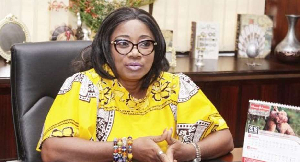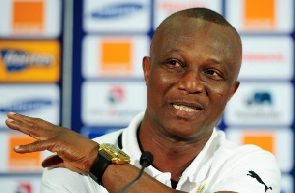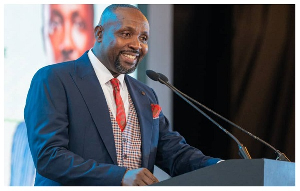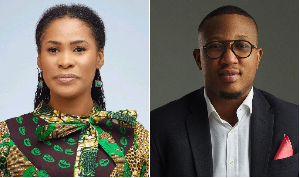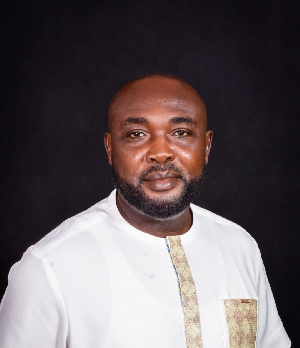The great son of Africa and freedom fighter, Osagyefo Dr. Kwame Nkrumah once remarked that “thus we take pride in the name of Ghana, not out of romanticism, but as an inspiration for the future,” (Nkrumah, 1953). The above quote is what Nkrumah perhaps purported it as a guiding principle for all Ghanaians. A quote representing hope, desire, dreams, ambition and a stake, but also of an urge, ability, will and a duty to create and maintain a society worthy of possessing and sharing amongst ourselves.
The republic of Ghana, was named after a medieval Empire that existed between 750 and 1076 AD, the new born independent state of Gold Coast had all in common with the “olden days Ghana” and was perceived by the forbearers of our independence to be as such. Believed to be the first, amongst many, to rise in ancient Africa, the Empire Ghana was originally known to its own “Soninke” citizens as Wagadou, however, the Empire became known in Europe and Arabia as the Ghana Empire by the title of its ruler (the Ghana, meaning "Warrior King”), and “like the father like son”, present day Ghana has never seized to be a “Warrior King” in all spheres of society. It occupies the pinnacle spot in Pan-African history having hit the torch for African Emancipation and became home to famous people in the world like Pan-Africanists W.E. B Du Bois, George Padmore and the rest. The country Ghana has a lot to celebrate, especially in its current political status as Africa’s model democracy comparative to what prevails in the West and most modern societies if only democracy is judged as the best way of government. It has ruled in many sporting spheres. Talk of Boxing and the name Barima, Professor Azumah Nelson not only “rings a bell” but “sounds a horn” of the land train trailer. In football, the paradoxically named Black “Starlets” has over the years humbled the “mightiest” Star, Brazil in international rounds.
However, one thing continues to elude Ghana, the “Warrior King”, and for that matter Ghanaians; economic prosperity, to climax the growth of the “Ghana” that the “Yaa-Nas”, The “Otumfous”, The “Nana Kwamena Ansahs”, Nkrumah, J.B Danquah, Rawlings and Kufuor, and all sought to create and share. Perhaps it is because we have forgotten, or worse still have failed, to recognise the foundations upon which the Gold Coast and later Ghana, was built – an aspiration.
Like the “American dream”, the “Ghanaian Aspiration” was rife and strong even before the name Ghana was given at Independence. It is this “Aspiration” that led to the creation and maintenance of the various Kingdoms in the Gold Coast. It is the same “Aspiration” that led Nana Kwamena Ansah of Elmina to start trading with Don Diego D’ Ajambuja (Quartey, 2007 an unpublished speech), thinking that he can create a State worthy of living and sharing for his people but unfortunately turned into the unthinkable, “filthy” slave trade, under the auspices of the evil minded Portuguese traders and later to be exploited by the Grand Britannia, “thanks to all of them”. And it is the same “Aspiration” that is driving the Black Starlets forward in their pursuit of world glory in football. Go for Gold, Starlets!
Fellow Ghanaians, Africans and Lovers of Africa, unfortunately this “Aspiration” has over the years been battered and subjected to immense humiliation that Ghanaians forget that once they aspired to be free; to live and to sit side by side as brothers and sisters in our churches, mosques, schools and even at work places. We forget that once we aspired to be the first black nation to be independent from the claws of the Grand Britannia. This “Aspiration”, I believe has to be restored, rejuvenated and maintained in order for us to build upon what the forebearers had left behind, so we can hand over a better society worthy of living to posterity with pride not prejudice, because we were handed over the same “Aspiration” some 50 years back. Only that we failed to nurture it, maintain it and to live under it. Instead, we chose to chase the empty but supposedly powerful American dream. We chose to live under the claws of Grand Britannia again for the sake of “pound power”. Are we to subject our young children, brothers, sisters, traditions and culture to the same dreams and claws that we are not happy with? Well, if not, then I believe the man to “fix it”, to restore “the Ghanaian Aspiration”, is Kwesi Nduom. Why? I am sure you may ask.
Politics they say is akin to the service industry, which heavily relies on reputation to make a sale (Scammell 1999). Reputation is what political parties need to sell themselves and so do States and governments, to win in today’s geopolitical negotiations. Winning States in global politics are the ones led by reputable individuals as Presidents and Prime Ministers. This Reputation is derived from, but not exclusive to performances in private and public lives, skills and qualifications, international profiles and networks. Oh! lest I forget, and also in moral uprightness, which has recently become big issues in politics due to unthinkable levels of corruption. All these, amongst others, are sources of reputation needed in seeking for political office, and for which Nduom unequivocally possess in equal measure.
It is therefore advisable for the CPP as a party, and in a larger perspective Ghana, as a country to choose Nduom as the leader. In modern Ghanaian democratic dispensation, CPP as an opposition party has very little historical landmarks in terms of political achievements to ride substantially on. Hence it’s Reputation, competence in government, could only be derived from the profiles – performance in private and public life, skills, qualifications, discipline and international links and networks – of its key candidates seeking political office, like the Presidential Flagbearer and Members of Parliament that it chooses. These Reputation variables mentioned above become sort of a ‘shadow competence to govern’ and hence lead voters to invest substantial trust in the party as an alternative government. These Reputation variables also offer the chance to tone down on, or better still, eliminate ‘negative campaigning’ of insults and allegations aimed at personalities, but rather gives a campaign much to say and to show to electorates in order to drive-in votes.
And so, I believe that what Nkrumah said as “thus we take pride in the name of Ghana, not out of romanticism, but as an inspiration for the future,” is epitomised by one and only one man, Kwesi Nduom, amongst the lots who are scrambling to win our “thumb power” in the various capacities as leaders of a party or the Nation. Like Nkrumah, Nduom’s sense of commitment, inclusivity, progressiveness and most importantly, his African-ness, stand for the characterization of “the Ghanaian Aspiration” which is the ambition to create and to share the wealth of the nation for us all. This he demonstrated in various capacities that he worked for and still does in Ghana and Abroad, whether in private or public lives, in business or in government. Nduom demonstrates the lessons left behind by the independence strugglers that all of us as Ghanaians, “Warrior Kings”, have a “duty to perform and a stake to claim” in the Ghana that we aspire to be.
To me as a citizen for a better Ghana, I can proudly see and say that Nduom for the Nation! The Ghanaian Aspiration for us all. What about you!










